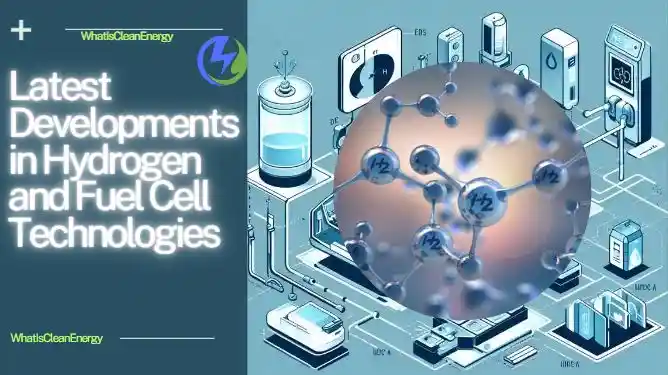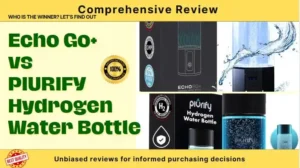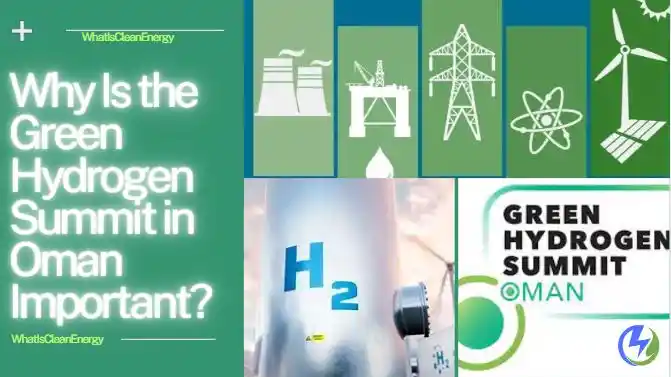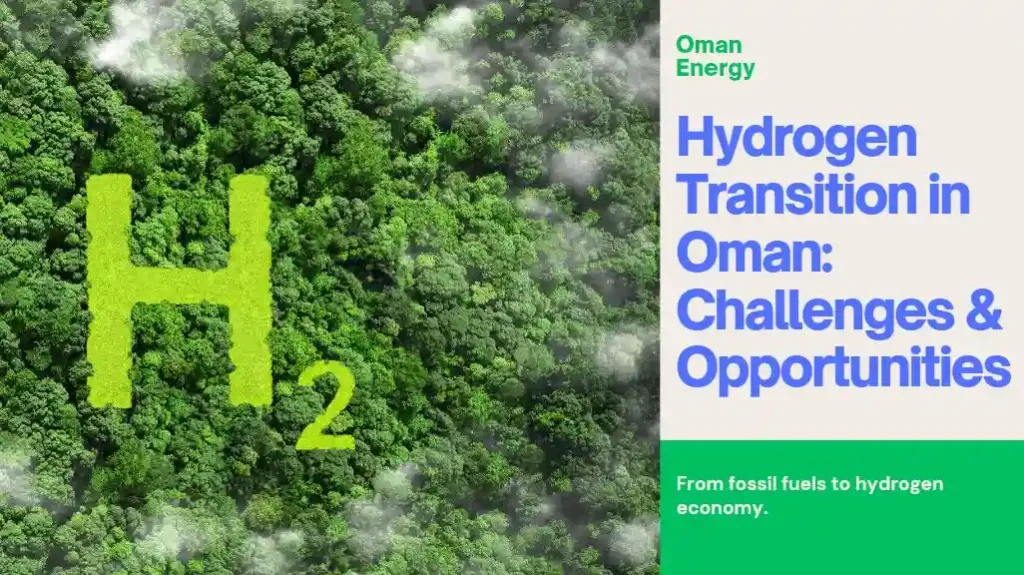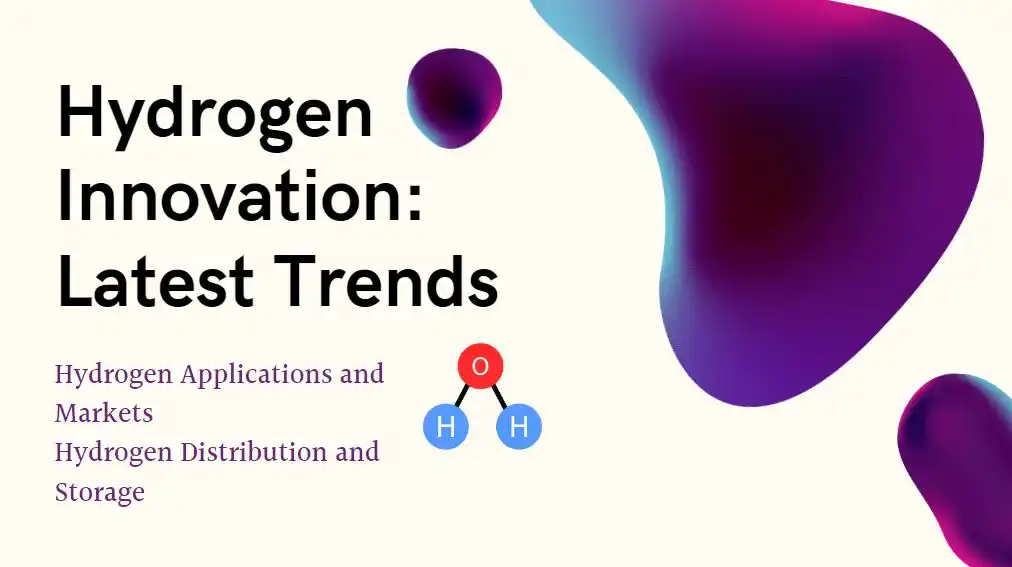Hydrogen is a light and clean fuel. It can be used in many sectors, such as transport, buildings, and power. Hydrogen can help reduce greenhouse gas emissions, enhance energy security, and diversify energy sources. But hydrogen also has many challenges, such as high costs, a lack of infrastructure, and public acceptance. To overcome these challenges and seize the opportunities of hydrogen, we need coordinated actions from governments, industry, and other stakeholders. Let’s look into the latest trends in hydrogen and fuel cell technologies and the upcoming events.
Trends in Hydrogen and Fuel Cell Technologies
Hydrogen and fuel cell technologies have gained a lot of momentum in the past few years. They have received more political and business support, more investments, and more markets.
There are several exciting trends shaping the future of hydrogen and fuel cell technologies. Here are some of the key trends to watch:
- Hydrogen Fuel Cells: These are becoming increasingly important for providing immediate power generation and aiding in demand response.
- Renewable Hydrogen: Large-scale decarbonization is achievable through the production of hydrogen from renewable energy sources.
- Advanced Electrolysis: Innovations in electrolysis technology are making hydrogen production more efficient and cost-effective.
- X-to-Hydrogen-to-X: This trend involves converting various feedstocks into hydrogen and then back into useful forms of energy or products.
- Hydrogen Carriers: These are methods and materials used to transport hydrogen efficiently.
- Carbon Capture, Utilization & Storage (CCUS): Integrating CCUS with hydrogen production can significantly reduce carbon emissions.
- Hydrogen Distribution: Developing infrastructure for the safe and efficient distribution of hydrogen is crucial.
- Hydrogen Liquefaction & Compression: These technologies are essential for storing and transporting hydrogen in a compact form.
- Combined Heat & Power (CHP): Using hydrogen for combined heat and power applications can improve energy efficiency.
- Hydrogen Propulsion: This trend focuses on using hydrogen as a fuel for various modes of transportation, including cars, ships, and even aircraft.
These trends are driving the hydrogen economy forward and helping to reduce dependence on fossil fuels.
Department of Energy (DOE)
The Department of Energy (DOE) is a U.S. government agency responsible for ensuring America’s security and prosperity by addressing its energy, environmental, and nuclear challenges through transformative science and technology solutions. Here are some key aspects of the DOE:
- Mission: The DOE’s mission is to advance the national, economic, and energy security of the United States, promote scientific and technological innovation, and ensure environmental cleanup from the Cold War nuclear mission.
- Leadership: The current Secretary of Energy is Jennifer M. Granholm. The DOE also includes various other leaders and experts in fields such as nuclear security, energy supply, and environmental management1.
- National Laboratories: The DOE oversees 17 National Laboratories, which are hubs for cutting-edge research and innovation in areas like supercomputing, quantum science, and fusion energy.
- Energy Earthshots: The DOE has launched initiatives called “Energy Earthshots” to accelerate the clean energy transition and achieve ambitious goals in areas like hydrogen, carbon capture, and energy storage.
- Programs and Offices: The DOE has various programs and offices focused on energy efficiency, renewable energy, nuclear energy, fossil energy, and more.
International Energy Agency (IEA)
The International Energy Agency (IEA) is an autonomous intergovernmental organization established in 1974, headquartered in Paris, France. The IEA’s mission is to ensure reliable, affordable, and clean energy for its member countries and beyond. Here are some key points about the IEA:
- Member Countries: The IEA has 31 member countries, representing about 75% of global energy demand. Some of the member countries include the United States, Japan, Germany, and the United Kingdom.
- Role and Activities: The IEA provides policy recommendations, analysis, and data on the global energy sector. It focuses on promoting energy security, economic development, and environmental protection.
- World Energy Outlook: The IEA publishes the annual “World Energy Outlook” report, which is a comprehensive analysis of global energy trends and projections.
- Clean Energy Transition: The IEA supports global efforts to accelerate the clean energy transition, mitigate climate change, and achieve net-zero emissions by 2050.
- Executive Director: The current Executive Director of the IEA is Fatih Birol, who has been in office since 2015.
Hydrogen Council
The Hydrogen Council is a global CEO-led initiative that brings together leading companies from the energy, transport, industry, and investment sectors to accelerate the development and commercialization of hydrogen and fuel cell technologies. Launched at the World Economic Forum in Davos in January 2017, the council now includes 140 multinational companies representing the entire hydrogen value chain.
The Hydrogen Council aims to:
- Increase visibility and recognition of hydrogen as a critical tool for energy systems decarbonization.
- Promote progress by identifying and unlocking impediments to the realization of hydrogen solutions.
- Foster collaboration with key stakeholders, including policymakers, businesses, international agencies, and civil society.
The council also coordinates and funds studies to provide concrete data and facts to support the further development of the hydrogen industry. It serves as a point of reference for key stakeholders worldwide and works to create strong, global action.
Upcoming Events in Hydrogen and Fuel Cell Technologies
- HyVolution 2025: January 28-30, 2025, in Paris, France. This event focuses on hydrogen for energy, industry, and mobility.
- 5th American Hydrogen Forum: February 12-13, 2025, in Houston, Texas, USA. This forum brings together industry leaders to explore advancements and opportunities in the hydrogen economy.
- 5th Global Hydrogen Forum: April 9-10, 2025, in Barcelona, Spain. This forum discusses innovative hydrogen solutions and global market dynamics.
- World Hydrogen Summit 2025: May 20-22, 2025, in Rotterdam, Netherlands. This summit is one of the largest gatherings focused on hydrogen technologies.
- Hydrogen Technology Expo North America: June 25-26, 2025, in Houston, Texas, USA. This expo is dedicated to advanced technologies for the hydrogen and fuel cell industry.
- Gastech Exhibition & Conference: September 9-12, 2025, in Milan, Italy. This event covers natural gas, LNG, hydrogen, climate technologies, and AI.
- Wood Mackenzie Hydrogen Conference: November 12-13, 2025, in London, United Kingdom. This conference explores key drivers and challenges of deploying low-carbon hydrogen.
Conclusion
Hydrogen is a promising energy carrier that can contribute to the clean energy transition and the global climate goals. However, hydrogen also faces many challenges. It requires concerted efforts from various actors and stakeholders. Hydrogen and fuel cell technologies can overcome the existing barriers and unlock their full potential by fostering innovation, collaboration, and investment.
References and Learn More:
1. energy.gov 2. iea.org 3. energy.gov 4. globalhydrogenreview

